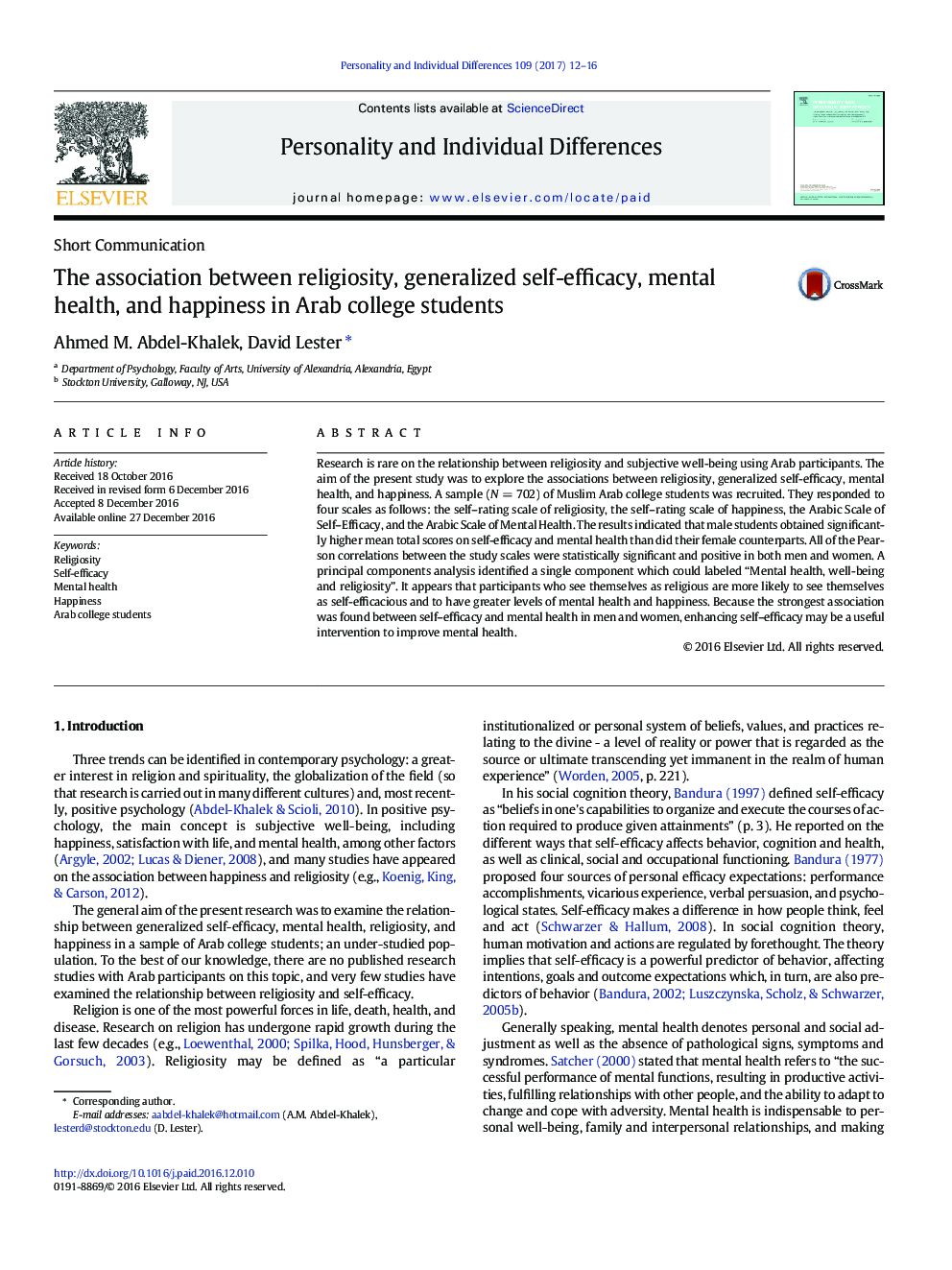| Article ID | Journal | Published Year | Pages | File Type |
|---|---|---|---|---|
| 5036310 | Personality and Individual Differences | 2017 | 5 Pages |
â¢In Arab college students, mental health was associated with religiosity and self-efficacy.â¢Self-rated happiness was positively associated with religiosity and self-efficacy.â¢Males scored higher than females on self-efficacy and mental health.â¢Scores for religiosity, self-efficacy, mental health and happiness loaded on a single factor.
Research is rare on the relationship between religiosity and subjective well-being using Arab participants. The aim of the present study was to explore the associations between religiosity, generalized self-efficacy, mental health, and happiness. A sample (NÂ =Â 702) of Muslim Arab college students was recruited. They responded to four scales as follows: the self-rating scale of religiosity, the self-rating scale of happiness, the Arabic Scale of Self-Efficacy, and the Arabic Scale of Mental Health. The results indicated that male students obtained significantly higher mean total scores on self-efficacy and mental health than did their female counterparts. All of the Pearson correlations between the study scales were statistically significant and positive in both men and women. A principal components analysis identified a single component which could labeled “Mental health, well-being and religiosity”. It appears that participants who see themselves as religious are more likely to see themselves as self-efficacious and to have greater levels of mental health and happiness. Because the strongest association was found between self-efficacy and mental health in men and women, enhancing self-efficacy may be a useful intervention to improve mental health.
